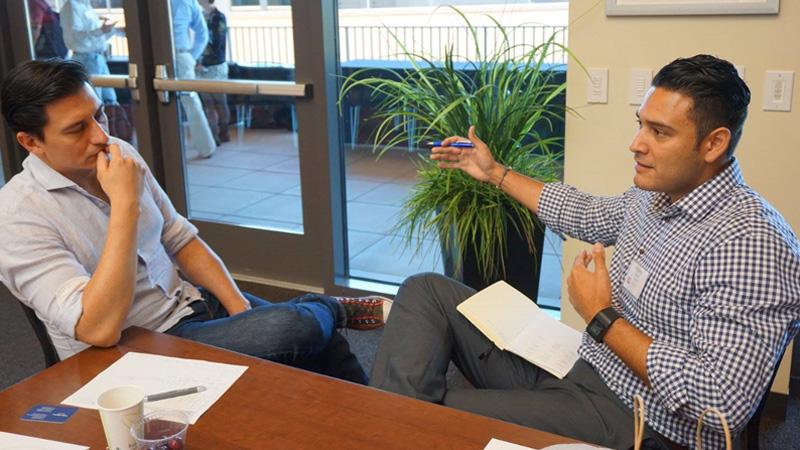In recent weeks, Latino business owners in San Francisco have voiced growing concerns over intensified Immigration and Customs Enforcement (ICE) activity in their communities, warning that the heightened enforcement could jeopardize their livelihoods and lead to potential closures. These entrepreneurs, many of whom have established their businesses as vital fixtures in the fabric of the city, argue that fear of deportation and targeted raids are driving away customers and dissuading immigrants from seeking employment. As the local economy grapples with the implications of these developments, the intersection of immigration policy and small business sustainability is becoming increasingly apparent. This article delves into the experiences of Latino business owners, their resilience in the face of uncertainty, and the broader implications for San Francisco’s diverse commercial landscape.
The Impact of Increased ICE Presence on Latino-Owned Enterprises in San Francisco
The escalating presence of Immigration and Customs Enforcement (ICE) in San Francisco has generated significant concern among Latino-owned enterprises. Business owners fear that the heightened enforcement actions could jeopardize their livelihoods by creating an atmosphere of fear and uncertainty. Many entrepreneurs report that customers, often undocumented, are opting to stay away from public spaces, leading to noticeable drops in sales. This sentiment is not only affecting their immediate profitability but also threatening the long-term viability of their businesses.
Moreover, the ripple effects of this increased ICE activity are evident in various sectors, including dining, retail, and personal services. According to local surveys, 91% of Latino business owners expressed that the rise in ICE operations has resulted in a noticeable decrease in foot traffic. Further responses indicated that over 75% were actively considering closure or relocation, if the situation did not improve. Key points from recent reports highlight:
- Declining Sales: Many establishments report a drop in revenue ranging from 15-30%.
- Employee Concerns: Workers fear for their safety and job security, leading to increased turnover.
- Community Impact: Closures could result in loss of cultural hubs that serve as vital community gathering spaces.
Strategies for Community Resilience Amid Uncertainty for Local Businesses
As concerns over increased ICE activity swirl in San Francisco, local Latino businesses are adopting several proactive strategies to fortify their resilience against the potential for disruption. By prioritizing community engagement, these businesses are forming alliances with local organizations and authorities to stay informed and prepared. This collaboration fosters a sense of solidarity and ensures that essential resources are available to mitigate disruptions caused by enforcement actions.
- Building a Support Network: Local businesses are connecting with advocacy groups to streamline communication and access resources that can help affected employees.
- Implementing Training Programs: Workshops focusing on legal rights and emergency protocols empower employees and business owners alike to navigate uncertain situations.
- Enhancing Customer Engagement: By weaving community concerns into their marketing, businesses can foster loyalty and encourage local patronage amidst fears of closures.
In addition to community mobilization, businesses are leveraging digital tools to bolster their operations and keep lines of communication open. With many customers increasingly turning to online services, having a strong digital presence can help businesses remain viable even in times of uncertainty. Utilizing social media platforms and local listing services allows businesses to update customers promptly about services and operational changes.
| Digital Strategy | Benefits |
|---|---|
| Social Media Engagement | Real-time updates and community interaction |
| Online Storefronts | Access to a broader customer base |
| Email Campaigns | Direct communication with loyal customers |
Advocating for Policy Changes to Support Latino Entrepreneurs Facing Immigration Challenges
Amid the growing concerns surrounding Immigration and Customs Enforcement (ICE) activities in San Francisco, Latino entrepreneurs are sounding the alarm over the potential fallout their businesses may face. Many owners describe a climate of fear that could lead to significant economic repercussions for the community. As reported, widespread apprehension about being targeted is impacting not only individual livelihoods but also the neighborhood’s prosperity. Business owners are calling for urgent action, emphasizing that successful Latino-owned establishments depend heavily on the community’s support, which they believe is jeopardized by these immigration enforcement tactics.
To address these issues, advocates are pushing for policy changes that would create safe spaces for Latino entrepreneurs. In their proposals, they highlight the need for:
- Legal protection against deportation for business owners and their employees.
- Access to resources aimed at enhancing legal awareness and support.
- Community outreach initiatives that foster trust and provide education regarding rights and protections.
Policies prioritizing inclusive economic growth could help bolster the viability of these businesses while ensuring that immigrant entrepreneurs feel secure in their contributions to the local economy. A proactive stance from city officials could mitigate fears and preserve the vibrant character of San Francisco’s Latino neighborhoods.
Key Takeaways
In conclusion, the concerns of Latino business owners in San Francisco highlight a critical intersection of immigration policy and local economic vitality. As the presence of ICE activities continues to spark fear within communities, entrepreneurs are forced to navigate an uncertain landscape that threatens their livelihoods and the cultural fabric of the neighborhoods they serve. The potential impact of these enforcement actions extends beyond individual businesses; it risks undermining the broader economic landscape that thrives on diversity and inclusion. As stakeholders on all sides grapple with these challenges, the future of Latino entrepreneurship in San Francisco remains at a pivotal juncture, raising profound questions about policy, community resilience, and the importance of supporting local economies in an increasingly complex environment. The stories and struggles of these business owners serve as a poignant reminder of the nuanced realities faced by immigrant communities and their indispensable role in shaping the city’s identity and economy.









